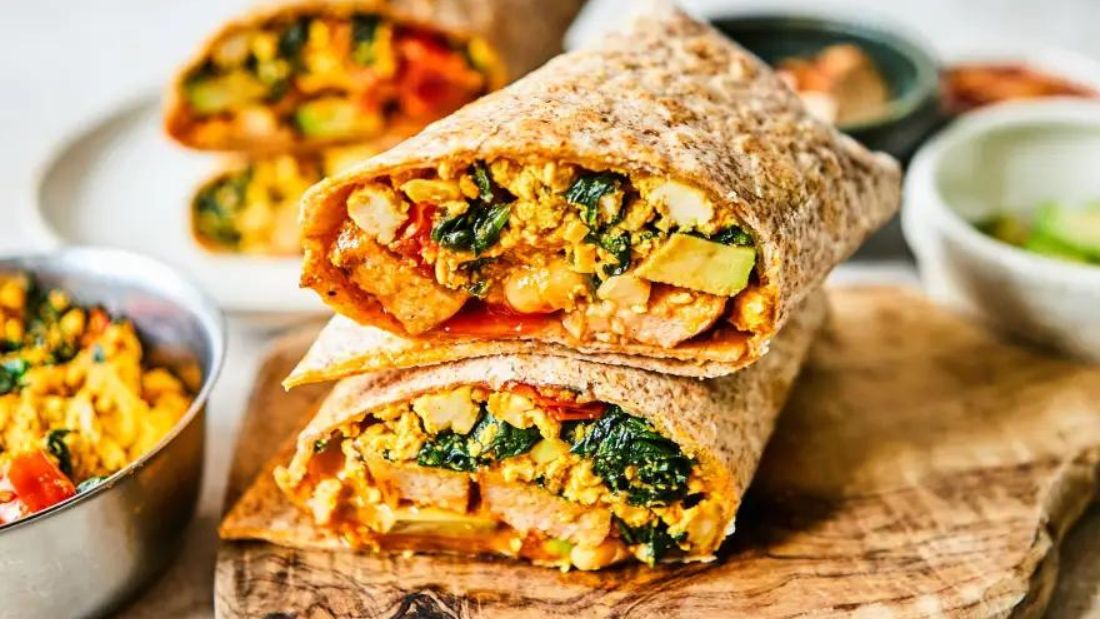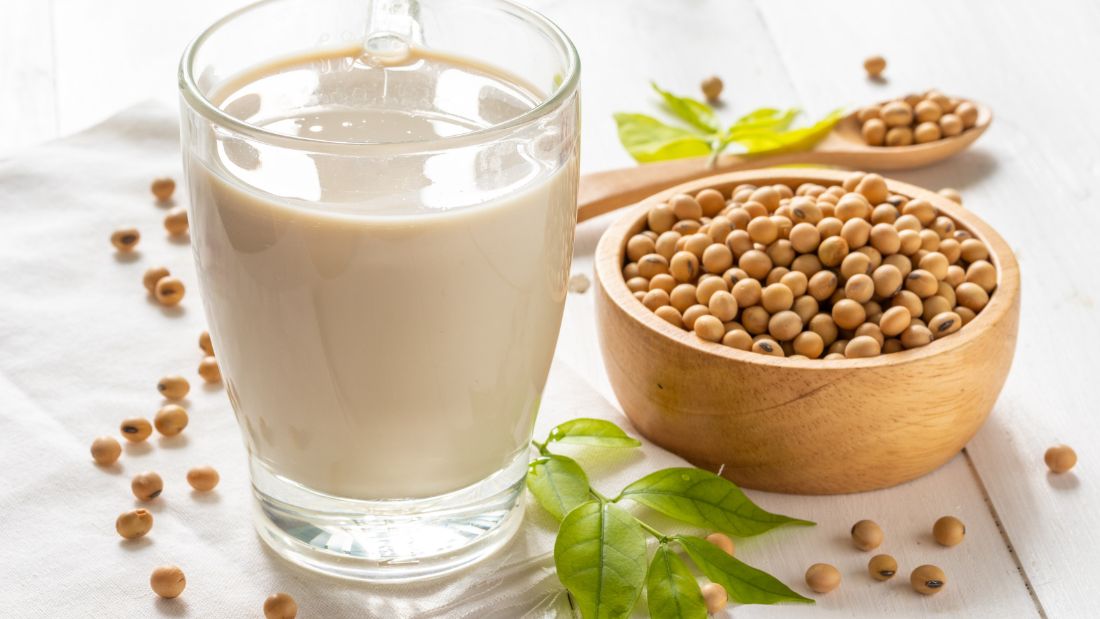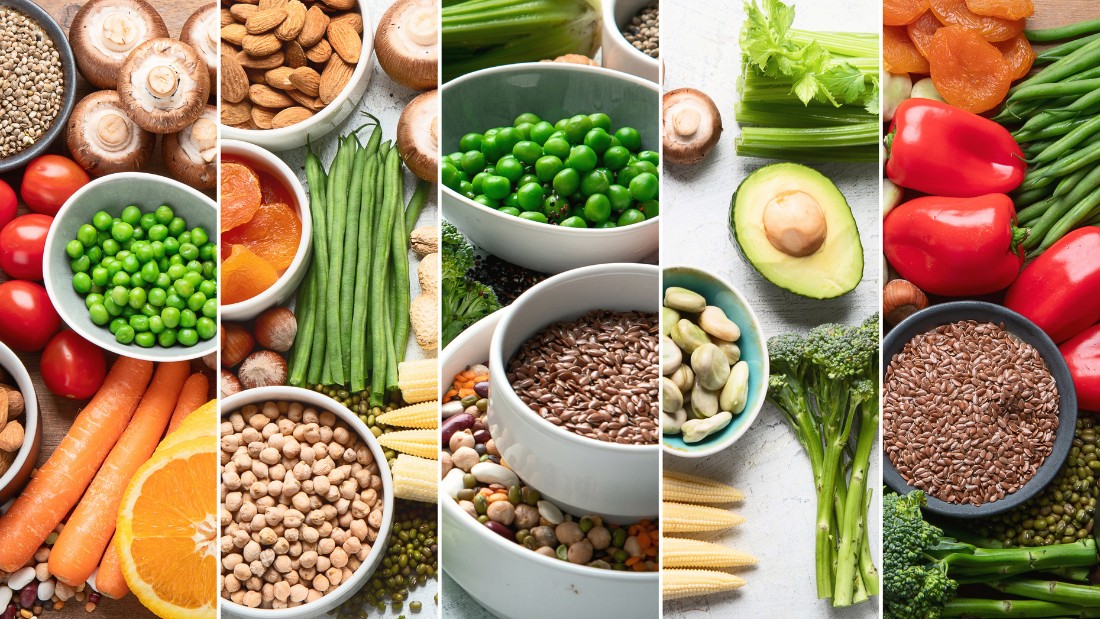Do I Have to Supplement Protein and Are Vegan Protein Powders Healthy?

You wouldn’t be blamed for thinking that it might be hard to get enough protein on a vegan diet.
It’s a widespread myth and often the first question posed to vegans by curious friends is “where do you get your protein?”
The good news is, you can get all the protein you need on a vegan diet and there is absolutely no requirement to supplement it.
However, there are reasons why someone might choose to supplement protein, perhaps by using a protein powder.
What is a vegan protein powder?
Vegan protein powder is… you guessed it… powdered protein, usually extracted from yellow split peas, soya, brown rice or hemp.
The wholefoods are usually ground to a fine powder and then processed to remove the fibre and starch.
Although fibre and starch are removed, the protein powder can retain many of its vitamins and minerals as the process is fairly minimal.
Some powders come in the form of a protein concentrate or a protein isolate.
Concentrates contain up to 80 per cent protein while isolates contain around 90 per cent protein.
Why might you supplement protein?
As soon as a vegan says they supplement protein, the assumption is made that a vegan diet doesn’t provide enough of the nutrient.
But let’s not forget that protein shakes are also very popular among meat-eaters who want to maximise muscle growth.
No one thinks it’s because their diet lacks protein.
So, just as many omnivores supplement protein if they work out a lot, vegans can do the same if they wish.
Convenience
Rather than supplementing protein with a shake because it is necessary, some people do it just because it is easy and convenient.
Many people like to drink a protein shake right before or straight after a workout.
If you don’t have time to cook a meal, or know you won’t be able to eat properly for several hours, it’s easy to glug a tasty shake to ensure your body gets all it needs to recover from the workout and prepare for the next.
A protein insurance policy
While a well-planned meal should provide all the protein you need, in reality we don’t always eat well-planned meals!
For most people, eating a nutritionally less-than-ideal meal every now and then isn’t going to matter if we’re eating well the rest of the time.
However, if you are very active and trying to bulk up, a protein shake can be a good insurance policy to make sure you’re meeting your needs.
This can be the case if you’re eating out and don’t have much control over your meal, and end up with a side salad or fries as the only option.
Lack of appetite
Another time when a protein supplement might be useful is if you’re struggling to eat enough food to meet your requirements – perhaps due to illness.
Sometimes when we’re ill we don’t have much of an appetite and drinking our meal can feel easier.
You can even add additional ingredients (banana, oats, berries, nut butter, flaxseed) so it contains the fibre and carbs you need too, as well as a healthy serving of vitamins.
The only downside to a protein shake is that you can’t really add beans… at least, not if you want it to taste good.
As we age
Additionally, as we age, our protein requirements increase as our body becomes less responsive to the amino acids in food.
It’s easy to compensate for this simply by eating more, but some older people have smaller appetites and struggle to eat the quantity of food needed to get enough protein.
However, most people can manage a drink so a protein shake can be the perfect solution.
It’s important to remember that a protein shake isn’t a replacement for a well-balanced meal, especially if you’re just mixing powder with water or a plant-based milk.
Of course, you can add fruit, leafy greens, oats, seeds and nut butter to them for other important macro- and micro-nutrients.
Are vegan protein powders as effective as animal-based powders?
If you’re worried that you won’t be able to build the same amount of muscle by using a vegan protein powder, don’t be.
A 2023 study published in The Journal of Nutrition pitted animal-based protein against plant-based protein in a very thorough trial.
A group of adults had to follow a rigorous resistance exercise routine.
Half of them sourced their protein predominantly from animal sources while the other half sourced their protein exclusively from plants, using a mycoprotein supplement (the protein derived from fungi used in Quorn products).
Before, during and at the end of a 10-week exercise programme, various measurements were taken including muscle fibre cross-sections, lean muscle mass and muscle strength.
The researchers concluded that both diets resulted in comparable muscle growth and skeletal muscle adaptation irrespective of protein source.
So, yes, you can absolutely get the same gains in the gym if you go vegan and research suggests you may even Improve your performance, recovery and stamina.
Just remember, you can consume all the plant protein in the world, but you still need to lift those weights to reap the rewards!
Are vegan protein powders healthy?
You might be sceptical of protein powders because they are a processed food. But that doesn’t mean they are unhealthy.
Of course, not all protein powders are equal. Different brands use different ingredients and may have different safety standards.
Ideally you want to avoid powders that have added ingredients like sugar, sweeteners and flavourings, and choose one that has undergone third-party testing.
Nutritional supplements are not regulated in the same way as medicines (and this varies depending on country), so third-party testing ensures that the product has been tested for purity and you’re getting what it says on the label.
If you’re not sure if a product is third-party tested, check out the company’s website – they should be boasting about it, or you can always contact them to ask.
NSF is one such, globally-recognised third-party tester to look out for on your products.
But, assuming your vegan protein powder has been produced safely and contains what it should, then, yes, the evidence says it can be a healthy part of a balanced diet and even improve quality of life.
Not to mention, by choosing a plant-based protein powder you are eliminating many of the dangers associated with whey protein including kidney and liver problems, acne, digestive problems, and even emotional and behavioural dysfunction.
Which vegan protein powder should I choose?
Vegan protein powder comes in many forms, most commonly: soya, (yellow split) pea, hemp, brown rice, or a blend of all four.
Whichever one you choose is down to personal preference but there are a couple of things to consider.
The first thing to think about is allergies and intolerances.
Some people are allergic to soya and hemp, which immediately knocks them out of the running.
Secondly, the protein content and amino acid (the building blocks of protein) profiles of each plant protein vary somewhat.
According to an analysis of isolated protein powders, hemp tends to have the lowest protein content and the least favourable amino acid profile.
Brown rice powder has a good protein content and just scrapes above the requirement for the nine essential amino acids.
Soya and pea protein have excellent amino acid profiles, meeting our needs for all nine of the essential amino acids, but pea protein trumps soya on its protein content.
This makes pea protein a popular choice for many people.
Surprisingly, potato protein beats them all on protein content and amino acid profile, but is not commonly available as a protein powder. Perhaps the humble potato is the future of protein supplements!
Ultimately, if you’re eating a varied plant-based diet, you’ll be getting all the essential amino acids anyway, so your protein powder of choice is probably going to come down to taste preference, cost and availability.







